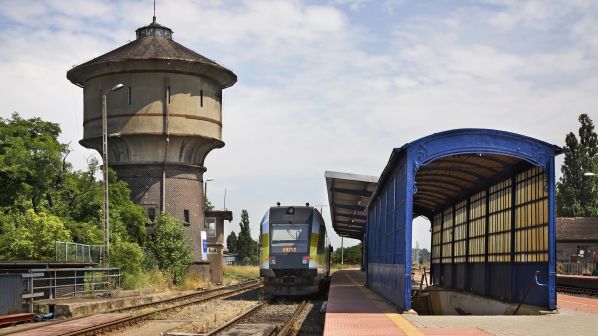THE federal states of Berlin and Brandenburg, together with the Berlin-Brandenburg Transport Association (VBB), have launched a study into upgrading the Berlin - Müncheberg - Kostrzyn, Poland, (RB 26) line to meet growing demand.
The line, previously known as Ostbahn, is currently partially single track and unelectrified, but the state governments have called for it to be track doubled and electrified, and made suitable for operation at 160km/h. An independent planning agency has begun developing a roadmap for the upgrades to allow the project to be eligible for federal and EU funding programmes.
The regions say the existing line is not fit for future demand. Tesla’s decision to build a “gigafactory” in Grünheide and planned expansions to regional services are expected to increase congestion on the Berlin - Frankfurt (Oder) line, which could be relieved by upgrading the Berlin - Kostrzyn line.
The Polish government is also looking relieve strain on the Frankfurt (Oder) - Poznań - Warsaw line, but the German government is yet to allocate funding to upgrade the German section.
The study will take survey the needs and requirements of stakeholders, including Federal Ministry of Digital Affairs and Transport (BMDV), the district of Märkisch Oderland and the Lubuskie Voivodeship, companies with sidings on the line, as well as German Rail (DB).
The final report will include at least variations to upgrade the line, which will meet three targets:
- short term, stabilising regional services on the RB 26 route
- medium term, up to 2036, replacing diesel trains with electric trains or, as a fall-back, using alternative fuels, and
- long term, by 2036, upgrading the route to a double-track electrified line suitable for operation at 160km/h.
The study will also examine the individual infrastructure measures in detail, calculate their costs and name possible funding programmes for the individual measures. The study is expected to be completed by the beginning of 2023.
Decarbonisation strategy
VBB, the government of Berlin-Brandenburg and DB have also presented a strategy to phase out the use of diesel in regional rail transport across Berlin. The plan centres on both expanding electrification and introducing alternative traction to deliver emission-free operation by 2037, up from 73% at present.
The strategy, issued under the i2030 infrastructure project, recommends partially electrifying the Wittenberge - Neuruppin - Berlin line used by Prignitz-Express RE 6 and RB 55 services to support operation by battery trains.
A report commissioned by VBB for the Prignitz-Express route recommends the deployment of battery multiple units on the route rather than hydrogen trains. VBB is now set to work with DB to identify on which sections should be electrified. The contract to operate the Prignitz-Express would also be retendered so it includes the supply of trains fitted with alternative traction.
A feasibility study by Potsdam-based consultancy Innoverse on behalf of the Ostprignitz-Ruppin local authority identified two 10km-long potential electrification islands on the 139km unelectrified section, which could be implemented for around €30m, a fraction of the minimum €150m cost of full electrification.

